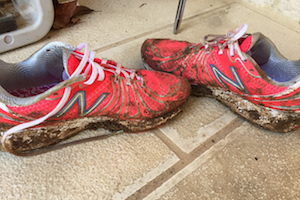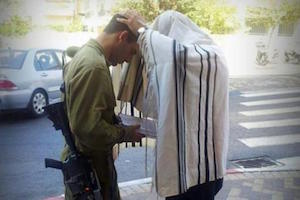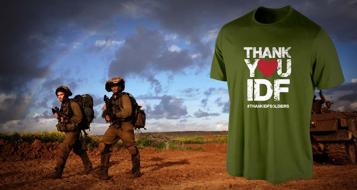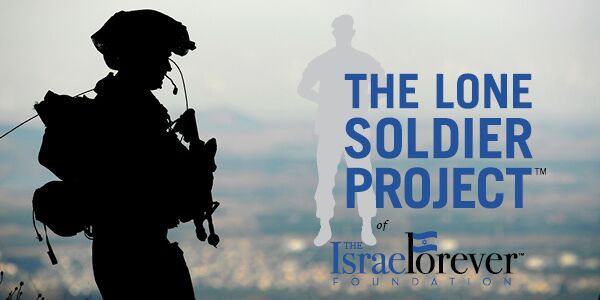Scared and Proud
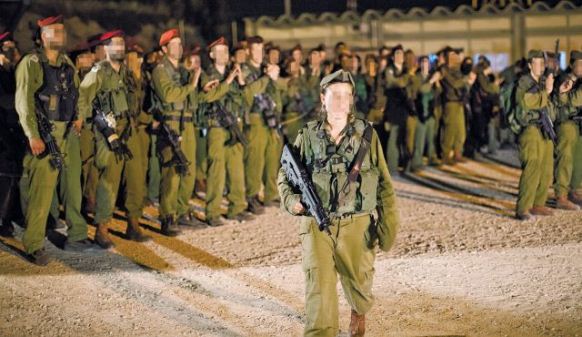
It’s interesting to parent a child in their late teens as that’s a transitional time in that child’s life, and decisions that are made will have a ripple effect for the rest of his/her life. I watch my nieces and nephew (and friends’ kids) who are at this stage of life during which is so much oriented on getting into college and everything that is involved in that.
But in Israel, it’s very different as the vast majority of men and women begin military or National Service at 18-19. The mindset and process are not only different, but for an immigrant, it’s something new entirely. But in Israel, it’s very different as the vast majority of men and women begin military or National Service at 18-19. The mindset and process are not only different, but for an immigrant, it’s something new entirely.
One might say that selecting a military unit in which to serve is like selecting a college in the US, except the unit selects you and while the college application process is rigorous with people dying to get into the best universities, in Israel we want to be sure that the soldier is a good fit for the unit so s/he doesn’t die.
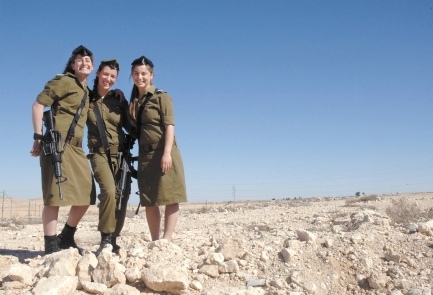
My three oldest girls did (or are doing) their National Service because, as orthodox women, they were exempt from military service on grounds of religious modesty. National Service is like a domestic Peace Corps where people give to their country in a way that’s not military, but invaluable nonetheless. National Service is not limited to women, and not exclusive to orthodox women, but in our community it’s the norm for women who don’t volunteer for the army to volunteer in some social service capacity for two years after high school.
Recently my oldest son reached the age where he was “invited” for his first formal sit down with officials from the IDF. Of course, it’s not like he could RSVP, no. But he’d never think to do that anyway. Like his friends, he will compete to get into the most elite combat unit he can. That’s the norm. It's part of our culture, not necessarily throughout Israel, but definitely where we live specifically. Israel has plenty of people who just want to serve and move along. Not here.
Our community is defined as national religious or modern orthodox. In terms of military service, this means combining a value system rooted in biblical history and religious values, and an intense commitment to the State and Land of Israel.
It's well known that in our community there's a much higher rate of men serving in elite combat units, and then going on to become officers, than our proportion of the population at large. It’s a point of pride and a standard that’s not only pretty much expected, but inculcated from birth. Young men who don’t make the cut still serve, but according to my daughters’ friends who are in this situation, they feel diminished in the sense that they are in a unit that’s not at the same “level” as other friends.
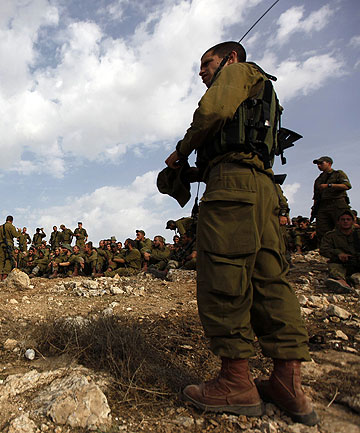
During my son’s visit with the IDF, he underwent a series of background checks, intelligence tests, physical profiling, etc. to give the army a basis upon which to assess where he’s best suited, and where they want him. To be invited to “try out” for the most elite combat units is a point of pride.
I’d like to think that I know my son well and can assess what units he’s most appropriate for. But I don’t know is how the army makes its decisions in this process because it’s all new to me as an immigrant.
The closest I got was to go to the same induction center where I dropped of my son, and present myself to a man half my age about a decade ago, as I tried to discern my status within the IDF. Still slightly winded from walking up four flights, I looked at him, told him why I was there, he looked back at me, down at the papers I had handed him, back up at me, and said “At your age?” He took out his trusty rubber stamp, stamped my papers, and told me I was exempt from service. Good decision. Paraphrasing Groucho Marx, I wouldn’t want to be part of an army that would have me as a member anyway.
I still think I know my son and know that he’d be great in the army’s intelligence unit. He’s analytical and smart and I think it’s a good fit. In discussing his military future over a Shabbat dinner with my family after his evaluation, I had the audacity to say this, and that how I thought it’d be good for his career and future. The famed Unit 8200 is known as the source of, and farm system for, many successful high tech and other entrepreneurs.
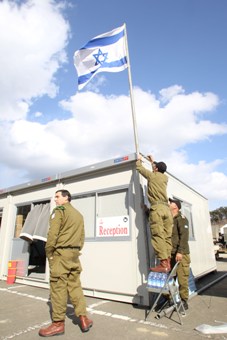
One of my daughters looked at me aghast. She’s the one who, when considering military or national service, was invited to an interview and subsequent testing for this very unity. The army had pegged her, rightly, as being very suitable. (I could tell you the rest of the interesting story of that but I’d have to kill you.)
“Abba,” she started as only a self-confident young woman could chastise her father, “We don’t serve the country to get something out of it. We serve to do something for the country.” Ouch. But she’s right, and I am proud that I raised her and her siblings to know this. I still think he ought to be in intelligence, but don’t tell anyone.
I’m also proud that as much as they bicker as siblings, my girls see in their brother the elements of a good combat soldier, as many of their closest friends have done. It’s nice to see their maturity overlaid with a heaping dose of nationalism.
I heard a rabbi in our community sum up these values that guide and motivate us and our community when it comes to military service. He shared that he is an Orthodox Jew and an officer in the IDF, but that he is an officer in the IDF because he is an Orthodox Jew.
Living in Israel we imbue biblical values which permeate everything we do. My son’s scores on his tests rank him high enough to be in pretty much any combat unit he wants. Of course I am proud of that, and can’t wait to see how the process unfolds. I am excited to take him to join the army one day as a Jewish man defending the Jewish state.
But I’d be lying if I didn’t say I was a little scared too. But I am much more proud than I am scared.
Jonathan Feldstein was born and educated in the U.S. and immigrated to Israel in 2004. He is married and the father of six. He has a three decade career in nonprofit fundraising and marketing and throughout his life and career, he has become a respected bridge between Jews and Christians. He writes regularly on major Christian web sites about Israel and shares experiences of living as an Orthodox Jew in Israel. He can be reached at FirstPersonIsrael@gmail.com.

